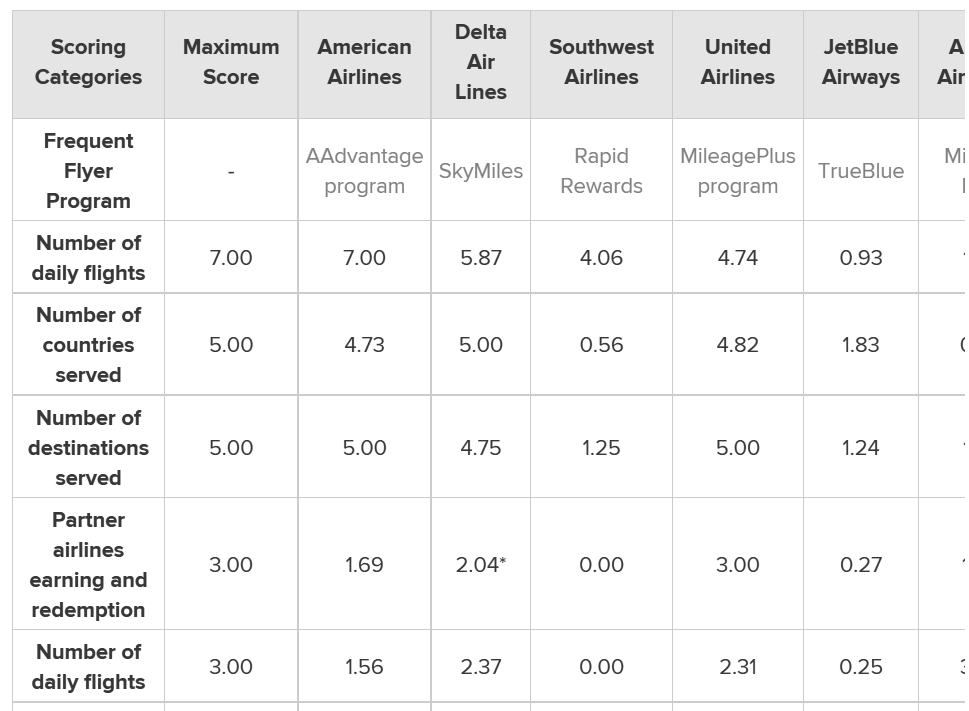The main problem with most best-loyalty-program studies is their underlying assumption that there’s a one-size-fits-all solution to the problem. Wrong! There is no single best program for everyone. What there is is a best program for you, given your goals and travel patterns and spending behavior.
As it did with its Best Hotel Rewards Program study, WalletHub makes an attempt to overcome the limitations of categorical best airline program studies, by considering a multitude of variables and keying the results to at least one key personal travel consideration.
Its just-released 2017’s Best Frequent Flyer Program study uses 23 “key metrics” to assess the value of the 11 largest U.S. airline programs for infrequent, moderately frequent, and very frequent travelers. And it allows users to customize the results to reflect their individual airfare budgets.
While the study boasts many of the earmarks of a thoroughly scientific analysis, including a full accounting of the metrics and their relative values, its headline finding is likely to call the entire undertaking into question. According to WalletHub, Delta’s SkyMiles program is the best overall frequent flyer program.
That result will spur head-shaking, eyebrow-raising, and cries of “Fail!” from legions of disaffected SkyMiles members.
And that’s not the study’s only problem.
As comprehensive as the study is, taking into consideration many of the factors that matter most to travelers, it fails in one critical respect: It doesn’t take account for travelers’ actual travel patterns. Hawaiian’s program may indeed be high-value for members traveling regularly between Hawaii and the mainland. But how many travelers fit that profile? Alaska’s program is terrific in any number of ways. But the airline’s limited route network makes the program a non-starter for residents of many cities.
There’s also the problem of the metrics’ weighting, which may or may not accord with the values individual flyers assign the various factors. For example, mileage expiration and award blackout dates are both assigned weights of 7. But is that their relative importance to you? Maybe, maybe not. And there are 23 such questionable weightings.
With those limitations noted, on a 100-point scale, here’s how the airlines scored in terms of value for the average traveler:
- Delta 61.64
- Alaska 54.14
- Hawaiian 50.24
- United 50.23
- American 44.24
- Virgin America 43.9
- Southwest 43.82
- JetBlue 40.05
- Sun Country 38.9
- Frontier 30.9
- Spirit 28.05
Your mileage may vary. A lot.
One finding of the study which does ring true and bears repeating: “Airline miles cost an average of 62% more than they’re worth when purchased rather than earned.”
Back to the drawing board, WalletHub.
Reader Reality Check
How much stock do you place in best-program studies like WalletHub’s?
After 20 years working in the travel industry, and almost that long writing about it, Tim Winship knows a thing or two about travel. Follow him on Twitter @twinship.
This article first appeared on SmarterTravel.com, where Tim is Editor-at-Large.


Leave a Reply